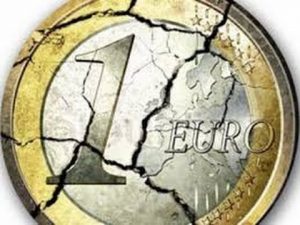John Bean says
 In a recent article on Brexit young Alterorbis on his blog, blessed with a still active brain, has studied the pros and cons of the EU’s effects on the economies of European nations, whether in or out of the EU. We can warm to the question he poses: “Is it a statist behemoth, a giant with feet of clay? Or is it a sinister capitalist’s club through which foreign capital and rich people can screw as much money out of the working classes?
In a recent article on Brexit young Alterorbis on his blog, blessed with a still active brain, has studied the pros and cons of the EU’s effects on the economies of European nations, whether in or out of the EU. We can warm to the question he poses: “Is it a statist behemoth, a giant with feet of clay? Or is it a sinister capitalist’s club through which foreign capital and rich people can screw as much money out of the working classes?
He then moves on to his support for the economies of Germany and France, which have nearly identical GDP per capita. Importantly, they are both significantly more productive per head than Britain is. Germany and France both have almost level economies against Britain’s chronic balance of payments deficit of 7% of GDP. This has been so while we were still active EU members.
All this has come about because we have destroyed so much of our former industry. Thus, we are ever more dependent on the monetary system and its ever expanding London-based operatives to keep afloat, becoming more dependent on the availability of cheap workers (whether imported or not). With the continual increase in Artificial Intelligence (AI) in Northern Europe, and Italy to some extent, where machinery is completely operated in computer sequence, fewer workers are being required. This is in contrast to the situation in the UK Where ‘AI’ engineering is hardly used. Will the future for the Northern European workers return to “bread and circuses” to keep the masses who will just be unsuitable for ultra-modern work requirements contented and under control – unless their lowered birth rates eliminates the problem.?
The financial surpluses built up as a result of Germany’s bumper sales of goods have partly gone to finance and support weaker members of the Eurozone who now owe Germany huge sums of money, most of which will never be repaid. Thus we see that the average annual increase in German consumers’ real incomes has been only 0.75%.
The EU members in Southern Europe. Greece in particular, are facing insurmountable problems, no matter how much their governments try to control them. The IMF and the Eurozone nations are in a fierce dispute over the next step in its £73billion bail out programme. According to Tim Wallace of the Daily Telegraph the creditor governments are now reluctant to offer extra write-offs to Greece, with the domestic political pressure in such countries as Germany preventing further debt relief. That puts the creditors on a collision course, he says.
The forging of a common currency was supposed to bring the countries of Europe together. In fact, it has now driven them apart. It seems that the damage done by the disastrous monetary experiment will bring an end to the EU within three years. And trade, freedom of business and European co-operation will be the better for it.




Leave a Reply